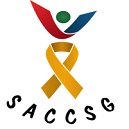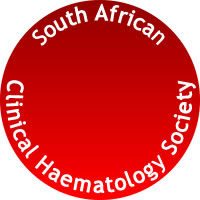Original Research
Adherence to guidelines on prophylaxis of chemotherapy-induced nausea and vomiting in the National Cancer Institute, Sudan
South African Journal of Oncology | Vol 1 | a9 |
DOI: https://doi.org/10.4102/sajo.v1i0.9
| © 2017 Moawia M.A. Elhassan, Arwa A.S.A. Ali, Mohamed O.M. Elmustafa
| This work is licensed under CC Attribution 4.0
Submitted: 12 January 2017 | Published: 28 February 2017
Submitted: 12 January 2017 | Published: 28 February 2017
About the author(s)
Moawia M.A. Elhassan, National Cancer Institute, University of Gezira, SudanArwa A.S.A. Ali, Wad Medani Teaching Hospital, Sudan
Mohamed O.M. Elmustafa, Faculty of Pharmacy, University of Gezira, Sudan
Abstract
Objective: To evaluate the adherence to American Society of Clinical Oncology (ASCO) guidelines for antiemetic prophylaxis of chemotherapy-induced nausea and vomiting and assess the outcomes of the prescribed antiemetic drugs.
Methods: This prospective, observational study enrolled chemotherapy-naive cancer patients who were admitted to the National Cancer Institute between May and July 2015 for intravenous chemotherapy. Patient’s demographic data, chemotherapy protocols and types of antiemetic drugs were collected by reviewing patients’ files, chemotherapy prescription forms and interviewing the patients.
Results: The data revealed that 90% of pre-chemotherapy antiemetic prescriptions did not adhere to antiemetic guidelines. The trends of non-adherence included an overuse of ondansetron (14%), under-prescribing of dexamethasone (16%) and corticosteroid duplication (14%). Regarding antiemetic use for the prevention of delayed emesis, the data showed that 90% of antiemetic prescriptions were non-adherent with ASCO guidelines, with overuse of ondansetron (20%) and metoclopramide (37%) and lack of dexamethasone prescriptions (80%) on days 2 and 3 being the most frequently reported trends. The percentage of patients with complete response (no emesis or rescue therapy) over 5 days post chemotherapy was 36%.
Conclusion: The study indicated an extremely low adherence rate to ASCO guidelines for antiemetic prophylaxis of chemotherapy-induced nausea and vomiting. Non-adherence included a trend of both underuse and overuse of indicated antiemetic medications.
Methods: This prospective, observational study enrolled chemotherapy-naive cancer patients who were admitted to the National Cancer Institute between May and July 2015 for intravenous chemotherapy. Patient’s demographic data, chemotherapy protocols and types of antiemetic drugs were collected by reviewing patients’ files, chemotherapy prescription forms and interviewing the patients.
Results: The data revealed that 90% of pre-chemotherapy antiemetic prescriptions did not adhere to antiemetic guidelines. The trends of non-adherence included an overuse of ondansetron (14%), under-prescribing of dexamethasone (16%) and corticosteroid duplication (14%). Regarding antiemetic use for the prevention of delayed emesis, the data showed that 90% of antiemetic prescriptions were non-adherent with ASCO guidelines, with overuse of ondansetron (20%) and metoclopramide (37%) and lack of dexamethasone prescriptions (80%) on days 2 and 3 being the most frequently reported trends. The percentage of patients with complete response (no emesis or rescue therapy) over 5 days post chemotherapy was 36%.
Conclusion: The study indicated an extremely low adherence rate to ASCO guidelines for antiemetic prophylaxis of chemotherapy-induced nausea and vomiting. Non-adherence included a trend of both underuse and overuse of indicated antiemetic medications.
Keywords
antiemetics; ematogenicity; emesis; cancer
Metrics
Total abstract views: 4587Total article views: 5619
Crossref Citations
1. Olanzapine for the Prevention of Chemotherapy-Induced Nausea and Vomiting: A Comparative Study From Sudan
Alaa A.M. Osman, Moawia M.A. Elhassan, Blala H.A. AbdElrahim, Fatima H.A. Ahmed, Jihad B.H. Yousif, Malak A.M. Ahmed, Romisa H.A. Abdelhafeez, Umsalama M.Y. Ahmed
Journal of Global Oncology issue: 4 first page: 1 year: 2018
doi: 10.1200/JGO.17.00216



